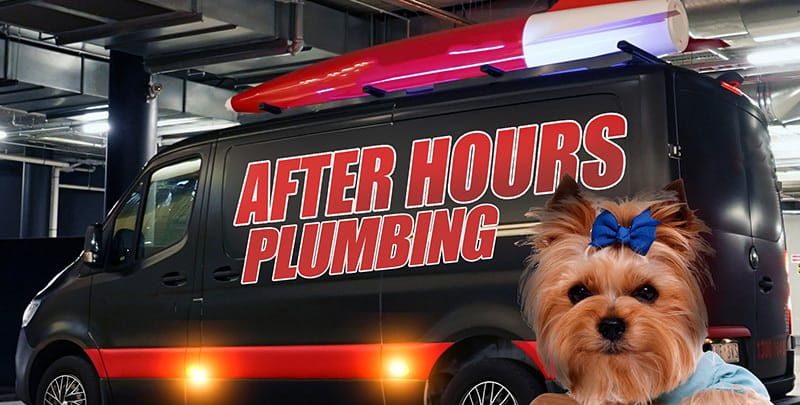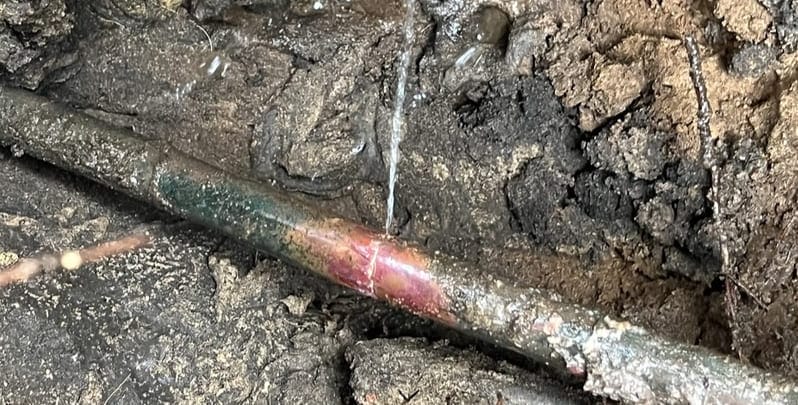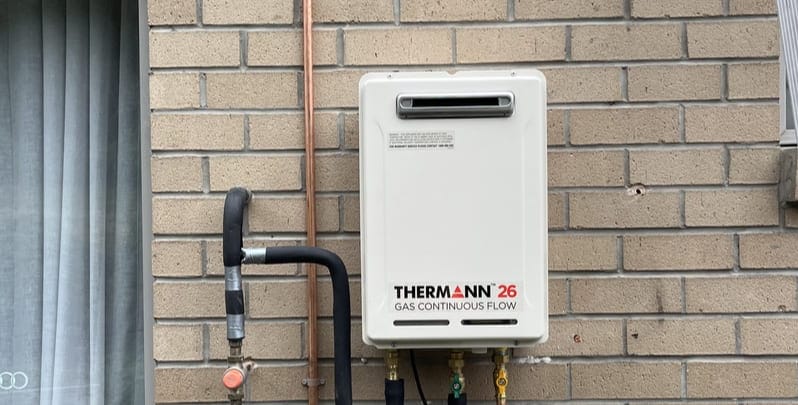5 Important Emergency Plumbing Tips

This guide will offer practical advice on managing common plumbing emergencies, highlighting the importance of regular maintenance and when to seek professional help from a licensed plumber.
By equipping yourself with knowledge and emergency contacts, you can prioritise safety, preserve your home’s structural integrity, and possibly reduce water bills, even before the plumber arrives.
What Constitutes an Emergency Plumbing Situation?
Recognising a major plumbing emergency promptly is crucial for protecting your home and avoiding expensive repairs. When faced with a sudden plumbing crisis, taking swift action is paramount. Here are some of the most common emergency plumbing situations you’ll likely encounter:
- Blocked drains: Can lead to water backup and potential property damage.
- Burst pipes: Pose a risk of flooding and significant water damage.
- Frozen pipes: May crack and disrupt your water supply.
- Leaking water heaters: Could result in a loss of hot water.
- Gas leaks: A serious safety hazard requiring immediate attention.
- Broken sewer line: May result in significant health issues.
In such emergencies, shutting off the water supply can mitigate further damage until an experienced emergency plumber can address the issue. Regular checks and maintenance of your plumbing system can help prevent these problems, but when they do occur, prioritising safety and seeking expert help is essential.
To handle emergency plumbing situations of any kind, fast action and professional intervention are key. They will ensure your home remains safe and functional.

#1: Know How to Turn Off the Water
In any plumbing emergency, the first step to prevent further damage is to shut off the water. Whether you’re facing a burst pipe, an overflowing toilet, or a small leak, knowing how to locate and use the main water valve is crucial.
This knowledge can save your home from significant water damage and give you control over common emergency plumbing situations.
- Locate the main water valve: Find the valve before disaster strikes. It’s typically located near the water meter, where the main water line enters your home. Ensure all household members know its location.
- Understand your hot water system: Know how to turn off the water to your hot water system to prevent issues related to burst pipes or leaks.
- Practice shutting off: Regularly check and practice turning the shut-off valve to ensure it’s operational and accessible during an emergency.
- Use temporary solutions: Until a professional plumber arrives, you may need to apply temporary solutions like duct tape on minor leaks to mitigate damage.
In plumbing emergencies, quick action can limit the impact of the problem. Contacting an emergency plumber for professional assistance is the next step after you shut off the water. Familiarising yourself with these processes and preparing with simple DIY solutions can help manage plumbing problems effectively.
#2: Tackle Small Leaks Immediately
Small leaks, if ignored, can escalate into a full-blown plumbing emergency, causing extensive damage to your property. Addressing leaks immediately with the aid of a local plumber can prevent problems like burst pipes, water damage, and increased utility bills.
- Identify the leak source: Inspect your plumbing regularly to catch early signs of leaking toilets, faucets, or pipes. Moisture or mildew around pipes, especially in the hot water system, often indicates a leak.
- Shut off the valve: For leaks related to specific fixtures, use the shut-off valve near the leaking element to stop water flow while you address the issue.
- Use temporary fixes: Apply a patch, plumber’s tape, or even a drain snake to manage the leak temporarily. These solutions can control the situation until a professional plumber assesses and repairs the problem.
- Call emergency services: Don’t hesitate to call emergency plumbers for professional help, especially for leaks related to gas lines or if the plumbing issue persists after initial efforts.
Tackling leaks promptly can prevent them from turning into major plumbing emergencies. Regular checks, immediate action, and professional assistance are key to managing such plumbing issues effectively.
#3: Keep Essential Tools Handy
Being prepared for a plumbing emergency means having the right tools at your fingertips. Whether it’s a burst pipe, blocked drain, or leaking toilet, quick access to essential tools can help you manage the situation until a professional plumber knocks on your door.
- Plunger: A must-have for any household, it’s your first line of defence against clogged drains and toilets, helping to clear blockages with minimal effort.
- Wrenches and pliers: Adjustable wrenches and pipe pliers are crucial for tightening connections and holding pipes during repairs, especially for fixing leaks in broken pipes or loosening fittings.
- Pipe tape or duct tape: Temporary fixes for small leaks or broken pipes can often be managed with pipe tape or duct tape, providing a quick seal to prevent water from escaping.
- Drain snake: A drain snake, or plumber’s auger, is effective for dislodging debris causing deep blockages in your plumbing system, particularly useful for persistent clogged drains.
Having these tools ready can make the difference in containing a plumbing problem before it escalates. Remember, while DIY fixes can temporarily relieve an emergency plumbing situation, consulting with professional plumbers is essential for a permanent solution to your plumbing issues.
#4: Understand Your Water Heater’s Role
The water heater is a critical component of your plumbing system, often at the centre of many plumbing emergencies. Understanding its function and common issues can prevent significant damage and ensure a continuous hot water supply.
- Regular inspection: Check your water heater periodically for signs of wear, leaks, or rust. Ensure the pressure relief valve works correctly to prevent potential overpressure and the risk of a burst tank.
- Know how to shut it off: Familiarise yourself with the shut-off controls of your hot water system to quickly respond in case of leaks or when servicing is needed. Turning off the heater can prevent overheating and related damage.
- Maintenance checks: Schedule annual inspections with professional plumbers to assess and service the water heater, identifying potential problems like sediment build-up or malfunctioning elements before they cause a plumbing emergency.
- Temperature settings: Ensure the water heater’s temperature is set within a safe range to avoid scalding risks and reduce energy consumption. Overly high temperatures can accelerate wear and contribute to plumbing issues.
By understanding and maintaining your hot water system, you can enhance its efficiency, prolong its lifespan, and prevent many common plumbing emergencies related to water heating.

#5: Prevent Future Plumbing Emergencies
Proactive measures are key to preventing future plumbing emergencies. Regular maintenance and a keen eye for early warning signs can save you from unexpected breakdowns and costly repairs.
- Regular maintenance: Engage with a licensed plumber for annual plumbing inspections. They can spot potential issues, like small leaks or early signs of pipe corrosion, before they escalate.
- Avoid harsh chemicals: Avoid using harsh chemical drain cleaners that can erode pipes over time. Instead, choose gentler, enzyme-based cleaners or mechanical cleaning methods to keep drains clear without causing damage.
- Educate household members: Ensure everyone in your home knows what shouldn’t go down the drains or toilets to prevent clogged drains and other plumbing issues. Items like cooking grease, wipes, and large food particles can cause blockages.
- Invest in upgrades: If recurring problems arise or your system is aging, consider upgrading your plumbing fixtures or pipes. Newer, more efficient systems can reduce the likelihood of emergencies and improve overall water usage.
By taking these preventive steps, you can reduce the risk of plumbing dramas, ensuring your system remains reliable and efficient for years to come.
Navigate Any Plumbing Emergency with Confidence
Navigating plumbing emergencies requires knowledge, preparedness, and prompt action. By understanding how your plumbing works, addressing issues immediately, keeping essential tools on hand, maintaining your hot water system, and taking preventive measures, you can effectively manage and reduce the need for an emergency plumber.
Remember, while some situations can be handled with DIY efforts, enlisting professional plumbers is crucial for complex problems – such as burst pipes, gas leaks or even a leaking toilet – to ensure safe and effective resolutions. Stay proactive and educated to protect your home from the unpredictability of emergency plumbing scenarios. Doing so will help preserve your peace of mind and the integrity of your household’s plumbing health.
Please note: This information is provided for advice purposes only. Regulations differ from state to state, so please consult your local authorities or an industry professional before proceeding with any work. See After Hours Plumbing’s Terms & Conditions here.
